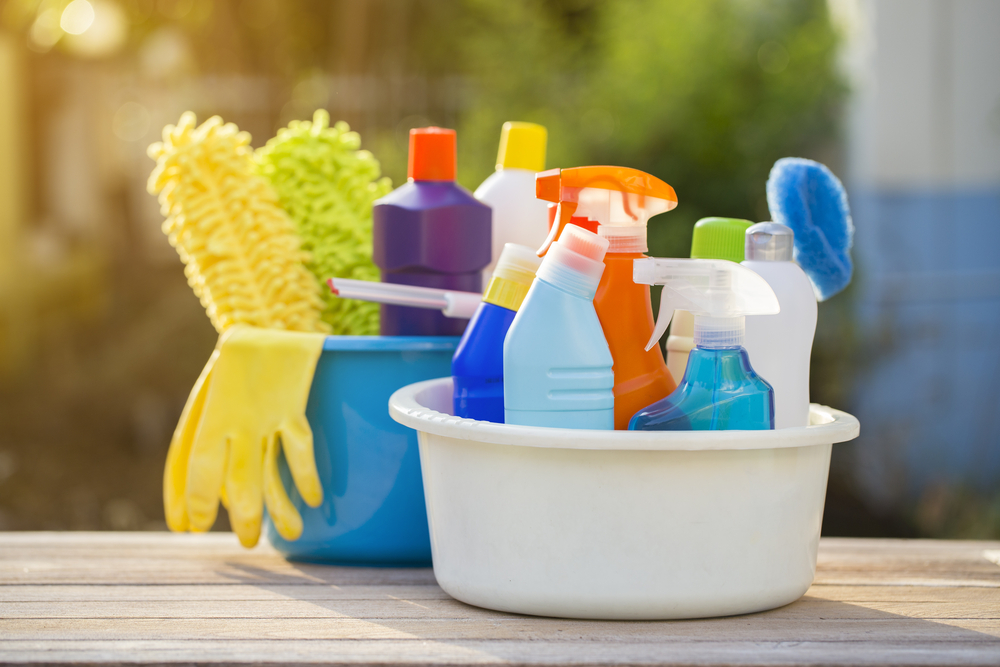In the seemingly quiet corners of your home, dangers to your hearing may be lurking unnoticed. While we’re well aware of the connection between noise and hearing loss, there’s a less recognized hazard—certain categories of chemicals commonly present in households. These silent culprits have the potential to inflict lasting and debilitating effects by harming the nerve fibers and delicate hairs within the ear.
What are ototoxic chemicals?
Chemicals, known as Ototoxicants, can lead to issues with hearing and balance and have nothing to do with noise.
Ototoxic chemicals are generally categorized into five groups that range from pharmaceuticals, solvents, and asphyxiants, to nitriles and metals and compounds. While some are common to certain industries, there are numerous chemicals right in our own homes that we need to keep an eye on.
Whether keeping pests from the yard, refinishing, varnishing, or painting furniture, cleaning rugs, or removing spots, the fumes, vapors, and ingestion of some legal household substances can put your hearing at risk.
Which household products contain ototoxicants?
Common products with ototoxicants which can cause hearing damage include:
- Benzene: plastics, paints, cleaning agents, cigarette smoke
- Carbon Disulfide: pesticides
- Carbon Monoxide: cigarette smoke, welding, gas-powered tools and vehicles
- Styrene: plastics, insulation
- Trichloroethylene: paints, waxes, pesticides, rug cleaners, spot removers
- Toluene: paints, lacquers, adhesives, spray paint
- Xylene: paints, varnishes, thinners
How does ototoxic chemicals affect hearing?
Ototoxic chemicals can affect anyone of any age and are absorbed through the body and bloodstream through the skin, by inhalation, or ingestion. The damage done to the ears depends on the classification of the chemical (neurotoxicants, cochleotoxicants, or vestibulotoxicants) that can injure the inner ear, neural pathways, nerve fibers, or hair cells which act as sensory receptors.
In addition to hearing impairment, it can also cause tinnitus and loss of balance.
In certain instances, sounds not only need to be louder to be detected, but the individual may lose the ability to hear voices separately from background noise which makes hearing loss harder to test or to measure and find the cause, using current audiometric testing.
Signs of ototoxicity
Symptoms of ototoxicity may include:
- headache
- dizziness
- pressure in the ear
- blurry vision
Specific to hearing, you may experience the following:
- Sound distortion
- Difficulty differentiating two sounds with similar frequency
- An inability to detect a time gap between sounds
- Trouble localizing sound
How to protect yourself from ototoxic chemicals
You can still be the handyman—or woman—with some awareness and preventive measures. Protect your hearing from ototoxic chemicals at home by:
- Reading the labels on your solvents, paints, compounds, and medications, and be aware of ototoxic ingredients.
- Wearing protective clothing and masks.
- Considering to buy the non-toxic version of whatever you need.
- Periodically monitoring your hearing, especially before and during medical treatment.
- Working and storing chemicals in well-ventilated areas.
- Properly disposing of ototoxic materials once finished with projects.
Protect your hearing and stay healthy! Find a hearing specialist near you to schedule a hearing test or for more information on keeping your hearing health in check.
